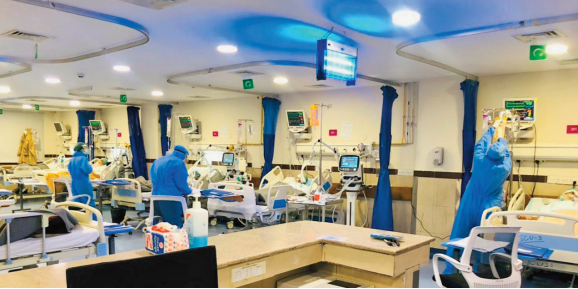Sindh's deadly diphtheria crisis: A call to action for improved healthcare
One hospital sees 72 cases, 20 fatalities in 2024
By Mukhtar Alam
KARACHI: A surge in diphtheria cases has hit Sindh, with 72 cases reported this year alone at one major hospital in Karachi, resulting in 20 tragic fatalities. This disturbing trend is part of a larger yearly increase in the infectious disease. The situation is further complicated by the scarcity of antitoxin medicine, which Sindh authorities have struggled to procure or import for months.
Experts
point to late diagnosis and inadequate healthcare as contributing factors to
the high fatality rate. Sindh health department data reveals a 17% overall
fatality rate among 160 recorded diphtheria patients. The fatality rate varies
across divisions, with Shaheed Benazirabad reporting the highest at 37% (35
patients), followed by Karachi and Sukkur at 14% (73 and 14 patients,
respectively), and Larkana at 3% (31 patients).
Alarming trends: The Sindh Infectious Diseases Hospital (SIDH) in Karachi admitted 72 diphtheria patients in 2024, with 20 fatalities, compared to 140 admissions and 52 deaths in 2023. The hospital received referred cases from the Sindh Institute of Child Health and Neonates (SICHN) and the National Institute of Child Health (NICH), both in Karachi.
Challenges in procuring antitoxin: A source at NICH shared that the hospital has catered to diphtheria cases since 1990, with the supply of antidote through EPI teams. However, during the ongoing financial year, EPI is not on board, and SICHN made arrangements for the medicine from its own resources, supporting NICH too. "We always arranged antitoxin either from EPI office or from our own resources. SICHN first time arranged this antitoxin and they helped us during this crucial time when the Diphtheria Antitoxin (DAT) is not available in local market at any cost."
A call to action: Independent observers stress that this outbreak highlights long-standing shortcomings in healthcare and community awareness. To combat the spread of diphtheria, experts urge the implementation of a thorough booster campaign across the province, alongside routine vaccinations under the Sindh Expanded Programme on Immunisation (EPI).
Resurgence of diphtheria: The incidence is rising, and the resurgence is multifactorial," said a physician at NICH. "The primary reason is the low vaccination coverage, particularly in rural areas where most of our patients come from."
The source confided that efforts to obtain DAT from the government have been unsuccessful, with the pharmacy department frequently reporting that the DAT is either unavailable or not approved by the Drug Regularity Authority Pakistan (Drap), as it is not produced locally.
Booster doses crucial: Regarding booster doses, the NICH doctor recommends following CDC guidelines, which include a booster dose at 18 months, followed by another at 4 to 6 years, and then every 10 years to maintain protection.
Provincial response: The provincial
health department reported an upsurge in suspected diphtheria cases from
hospitals, including CMC Children Hospital Larkana. “As the cases were in very
critical condition, it was largely feared that the innocent children might
succumb to the bacteria caused infection, particularly in the absence of DAT,
which helps in proper management of cases and averting casualties.”
EPI has moved to add a booster dose of DTP-containing vaccine in routine immunisation for children under 5 from 2025. The Federal Directorate of Immunisation, Islamabad, has been requested to provide DAT as a donation.
Expert insights: Dr Qalab Abbas, a
Paediatric Critical care specialist at AKUH, expressed that diphtheria cases in
Karachi mostly come from rural Sindh and Balochistan. "By the time they
reach Karachi, the children are in very critical condition, such that nothing
can be done." He suggested a three-prong strategy to overcome the
development: ensure supplemental vaccination in areas where patients come from,
enable healthcare providers to catch signs early, and ensure DAT availability
with quick Drap approval, especially in rural areas.
SICHN's efforts: Prof Jamal Raza,
lead figure at SICHN, emphasised that his institution had made attempts to procure
the antitoxin proactively, given its prior unavailability. "It took us a
few months to procure the medicine through regular channels with prior
permission from Drap. Since there was a surge in the disease and as the
medicine is a life-saving intervention, we are giving it to all hospitals free
of cost, although the per-patient cost for us is about a couple of lakhs of
rupees."







Comments
Post a Comment